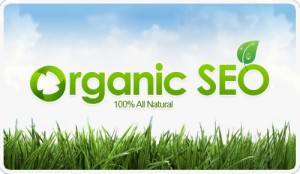On-Page SEO

Optimize your website’s structure, content, and meta tags to improve search engine rankings and user experience.
On-page SEO refers to all the elements you can optimize directly on your website to improve its search engine rankings. This includes: Content Optimization: Creating high-quality, keyword-rich content that is valuable to users. Meta Tags: Optimizing title tags, meta descriptions, and headers (H1, H2, etc.) to be relevant and keyword-focused. URL Structure: Using clean, descriptive URLs that include targeted keywords. Internal Linking: Linking to other pages within your site to improve navigation and distribute page authority. Mobile-Friendliness: Ensuring your site is responsive and functions well on mobile devices. Page Speed: Enhancing website load time to improve user experience and search rankings. How it works for web developers: Developers implement clean coding practices, optimize images, ensure mobile responsiveness, and streamline the user experience for better on-page SEO.
Technical SEO

Technical SEO focuses on optimizing the infrastructure of your website to help search engines crawl and index it more effectively. Site Architecture: Creating a logical site structure with a clean and organized layout to ensure both users and search engines can easily navigate your site. XML Sitemaps: Generating and submitting XML sitemaps to search engines for easier indexing. Robots.txt: Using a robots.txt file to guide search engine crawlers on which pages to index and which to avoid. Structured Data: Implementing schema markup (structured data) to help search engines understand the content of your pages and display rich snippets in search results. Security: Ensuring your website uses HTTPS, which is a ranking factor and helps secure user data.
E-commerce SEO

E-commerce SEO focuses on optimizing online stores to drive traffic, improve product visibility, and increase sales. Product Descriptions: Writing clear, keyword-rich product descriptions. Image Optimization: Optimizing product images for faster loading and better search visibility. Product Reviews and Ratings: Encouraging customer reviews to improve credibility and rankings. Category and Filter Optimization: Organizing products into well-defined categories and implementing search filters for better navigation. How it works for web developers: Developers ensure that e-commerce sites are user-friendly, have efficient product categorization, fast loading speeds, and are optimized for mobile shopping experiences.
Video SEO
Video SEO involves optimizing video content on platforms like YouTube and integrating videos into your website. Video Titles, Descriptions, and Tags: Using relevant keywords in video titles, descriptions, and tags to help search engines index and rank your videos. Video Transcripts: Adding transcripts or captions to improve content accessibility and indexing. How it works for web developers: Developers ensure that videos are properly embedded on the site, optimized for fast loading, and compatible across all devices.
Local SEO
Local SEO is designed to optimize your website for location-based searches. This is particularly important for businesses with a physical presence or service area. Google My Business: Creating or optimizing a Google My Business profile to appear in local searches. Local Citations: Ensuring your business information is consistent across local directories and websites. Reviews: Encouraging positive reviews on platforms like Google, Yelp, or industry-specific sites. How it works for web developers: Developers can help by setting up and optimizing your Google My Business listing, ensuring accurate local information on the website, and integrating local maps and location features.
Off-Page SEO
Off-page SEO refers to activities that take place outside of your website to improve its authority and rankings, mainly through backlinks. Backlinks: Acquiring quality links from reputable websites that direct traffic to your site. Social Media Engagement: Sharing your content on social media platforms to drive traffic and increase visibility. Influencer Marketing: Collaborating with influencers or industry leaders to promote your content. How it works for web developers: Developers may help by ensuring the website is technically sound, making it easier for other sites to link back to it. They might also optimize the integration with social media platforms.


